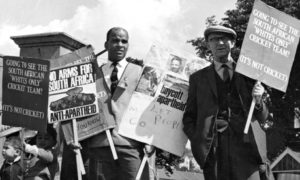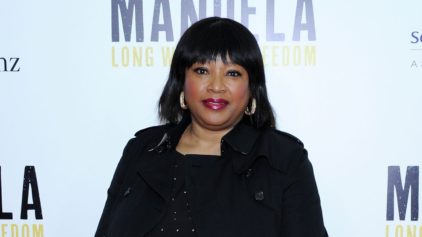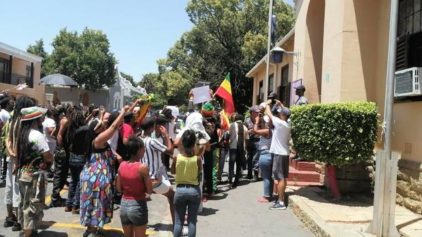I
Mandela became president at the head of a government of national unity, the last remaining international sanctions were lifted, and the country took up its seat again at the U.N. General Assembly after an absence of 20 years. It was a time for rejoicing but also, for anti-apartheid campaigners around the world and not least in Britain, the end of a journey.
“We had accomplished what we set out to do,” says Christabel Gurney, who joined the British Anti-Apartheid Movement (AAM) in 1969 and edited its monthly newsletter throughout the 1970s. AAM was dissolved and some of its members founded a new, smaller group, ACTSA, which still campaigns for justice and rights in southern Africa, combating the legacy of apartheid. One of AAM’s final acts was to set up a committee to preserve and catalog the great mass of historical material – documents, posters, leaflets, speeches, video and photographs – recording more than three decades of campaigning.
With the help of the Bodleian Library in Oxford, where the archive is stored, and money from the Heritage Lottery Fund and the Amiel and Melburn Trust, that goal too has now been accomplished. An engrossing new website, Forward to Freedom: the History of the British Anti-Apartheid Movement 1959-1994, went live this week, featuring archive highlights such as iconic posters from campaigns against the death penalty for the Rivonia accused and the 1970 Springbok cricket tour; footage from the Nelson Mandela tribute concert at Wembley Stadium in 1988; and letters from Prime Minister Margaret Thatcher arguing against sanctions on South Africa.
The site also includes interviews with more than 50 anti-apartheid activists, including the Specials’ Jerry Dammers (author of protest song Free Nelson Mandela), actor Louis Mahoney, trade unionists Jack Jones and Ron Todd, the politician David Steel, who was AAM president in the 1960s, churchman David Haslam and journalists such as Victoria Brittain of The Guardian, as well as grassroots campaigners such as the students who called for university disinvestment. A related pop-up exhibition makes its debut at the House of Commons in June, and an educational pack is being prepared for secondary schools.
Source: theguardian.com

